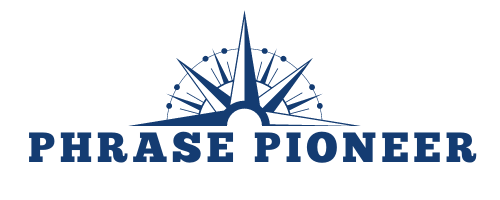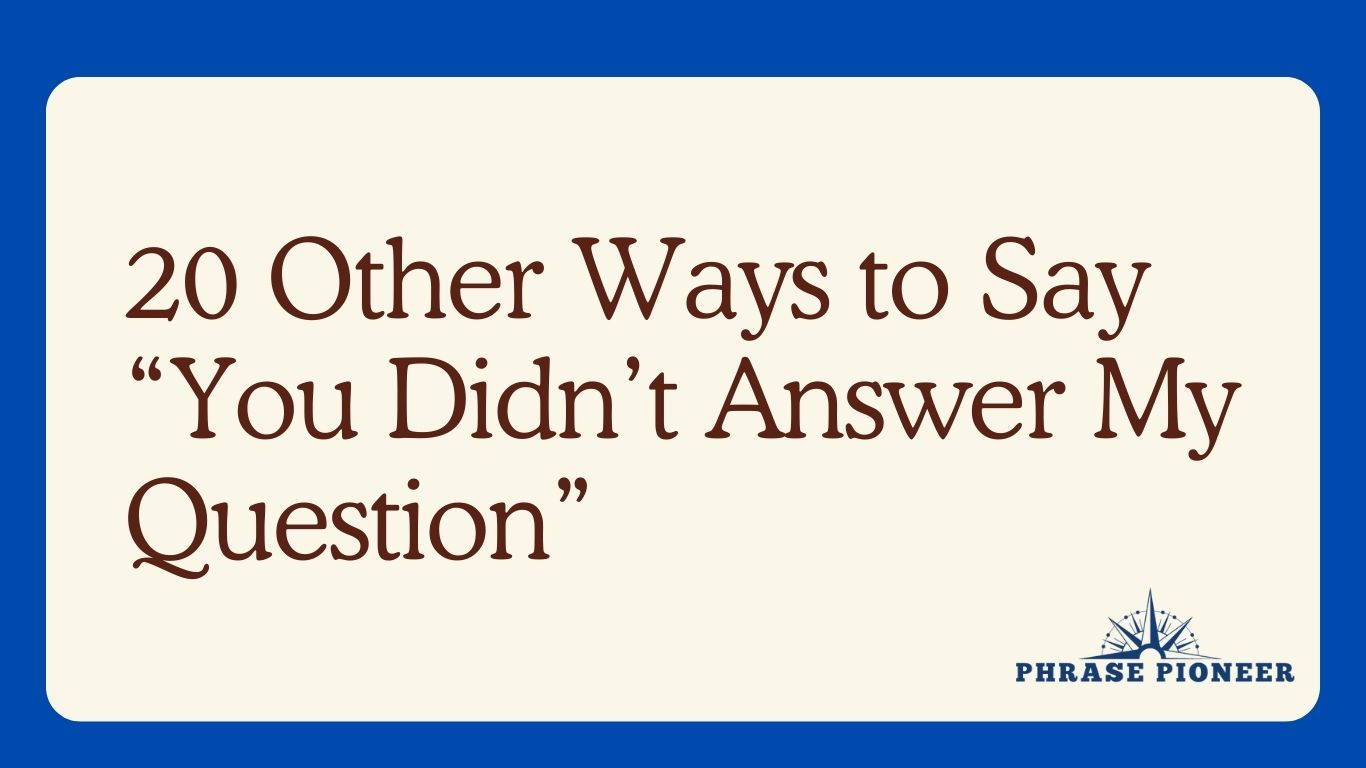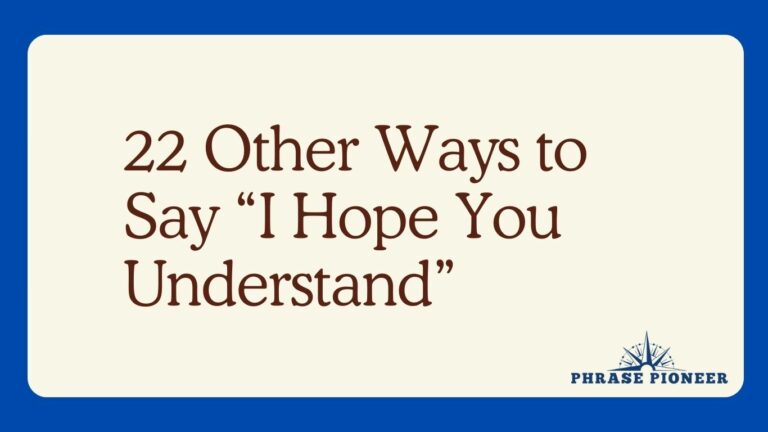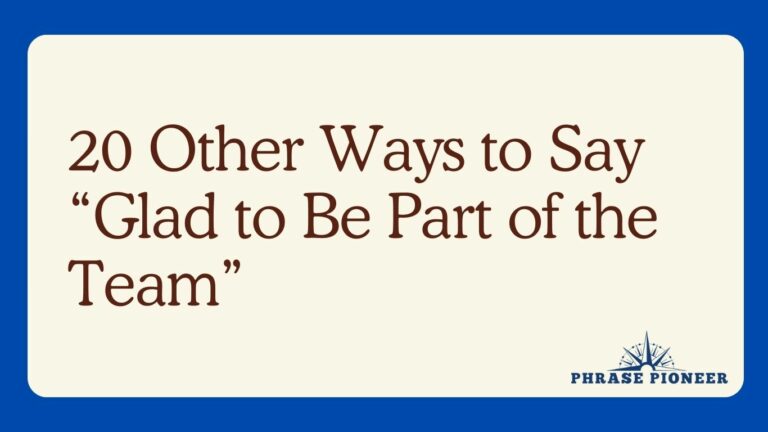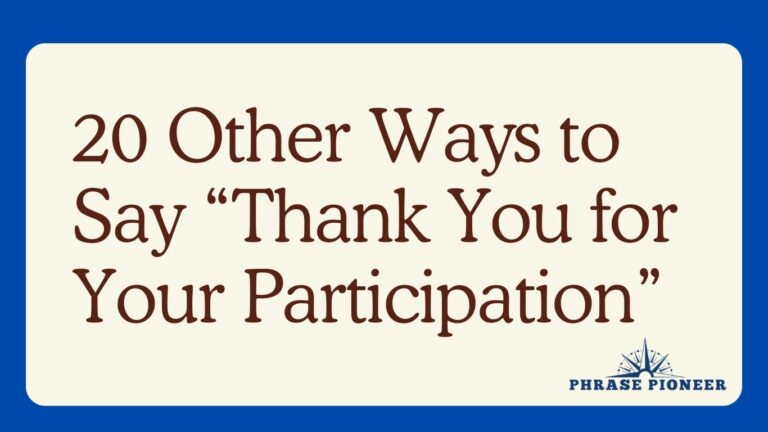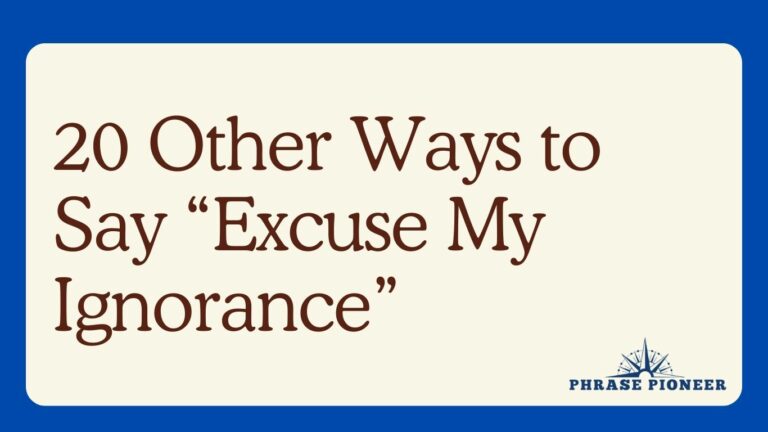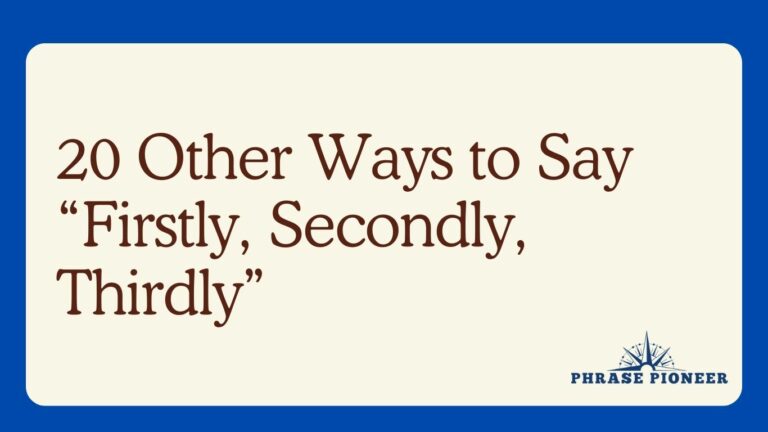20 Other Ways to Say “You Didn’t Answer My Question”
Navigating through conversations, we sometimes encounter moments when our questions seem to go unanswered.
Whether it’s in a professional setting, an interview, or a casual chat, there’s a need to express, tactfully or directly, that our inquiries have remained unaddressed.
Here are 20 alternative ways to say “You didn’t answer my question,” each presented with an example and an explanation to provide context for their use.
Direct Approaches
I believe my question was not addressed.
- Example: As the discussion continued, Sara interjected, “I believe my question was not addressed. Could we revisit that point?”
- Explanation: This statement politely signals that the initial question has been overlooked without assigning blame.
You seem to have overlooked my question.
- Example: During the Q&A session, Tom noted, “You seem to have overlooked my question. May I ask for more clarification?”
- Explanation: By suggesting inadvertence, it implies a gentle nudge towards receiving a direct answer.
My inquiry appears to remain unanswered.
- Example: Frowning slightly, Jane pointed out, “My inquiry appears to remain unanswered. Could you please respond to it?”
- Explanation: This phrase maintains formality while clearly indicating the need for a response.
Inquisitive Prompts
Could you address my earlier question?
- Example: With persistence, Liam asked, “Could you address my earlier question, please?”
- Explanation: This query directly requests that the speaker return to the previously asked question.
Perhaps my question was missed?
- Example: Making eye contact, Anita politely reminded, “Perhaps my question was missed? I was hoping for your input on it.”
- Explanation: This phrase subtly suggests that the question might have been unintentionally skipped.
Would you mind returning to my initial query?
- Example: At the conference, Dr. Ellis said, “Would you mind returning to my initial query? It’s crucial for my research.”
- Explanation: It’s a respectful way of asking the speaker to circle back to a question they may have passed over.
Light-hearted Nudges
I’m still dancing around the edges of my question.
- Example: During the debate, he quipped, “I’m still dancing around the edges of my question. Can we waltz directly to it?”
- Explanation: This metaphorical phrase adds a touch of humor while asking to address the core of the initial question.
Are we playing hide and seek with my question?
- Example: She joked in the crowded meeting room, “Are we playing hide and seek with my question? It seems to be hiding!”
- Explanation: This playful remark serves to lighten the mood while pointing out that the question has not been answered.
My question appears to be camouflaged. Could we uncover it?
- Example: Chuckling, the journalist said, “My question appears to be camouflaged. Could we uncover it?”
- Explanation: A humorous analogy that suggests the question has been hidden and needs revealing.
Polite Reminders
I’m not sure my question has been fully answered.
- Example: With a hint of concern, the investor remarked, “I’m not sure my question has been fully answered. Could you elaborate?”
- Explanation: This phrase diplomatically hints that the answer given was inadequate or incomplete.
Did you catch my question earlier?
- Example: After a moment of silence, the moderator interjected, “Did you catch my question earlier, or should I repeat it?”
- Explanation: A polite way to remind someone about a question that may have been missed, offering a chance to respond.
I’m eager to hear your thoughts on my original question.
- Example: The student said, “I’m eager to hear your thoughts on my original question. Would you mind addressing it?”
- Explanation: By expressing eagerness, the asker shows interest and invites the respondent to answer the primary question.
Assertive Statements
You’ve circumvented my question.
- Example: Growing impatient, the lawyer stated, “You’ve circumvented my question. I insist on a direct answer.”
- Explanation: This strong statement asserts that the question has been deliberately avoided and demands a straightforward response.
My question still stands.
- Example: Trying to regain focus, the chairman declared, “My question still stands. Would you please address it?”
- Explanation: This uncomplicated declaration serves to reaffirm that the question remains and requires an answer.
It appears my question went unanswered.
- Example: With measured tones, the interviewer observed, “It appears my question went unanswered. Could we revisit it?”
- Explanation: This observation indicates that the previous question was not answered, possibly due to an oversight.
Gentle Probes
Perhaps I wasn’t clear with my question?
- Example: In the classroom, the professor pondered, “Perhaps I wasn’t clear with my question? Let me rephrase it for clarity.”
- Explanation: By questioning the clarity of their own inquiry, the asker gives the respondent a chance to provide an answer without directly accusing them of avoidance.
Could you help me understand your response to my initial question?
- Example: The mediator sought clarity, “Could you help me understand your response to my initial question?”
- Explanation: This phrase solicitously requests an explanation and connects it to the initial question in hopes of a more detailed answer.
May I steer us back to my original question?
- Example: The concerned citizen inquired at the town hall meeting, “May I steer us back to my original question?”
- Explanation: This polite request seeks to guide the conversation back to the unresolved query.
